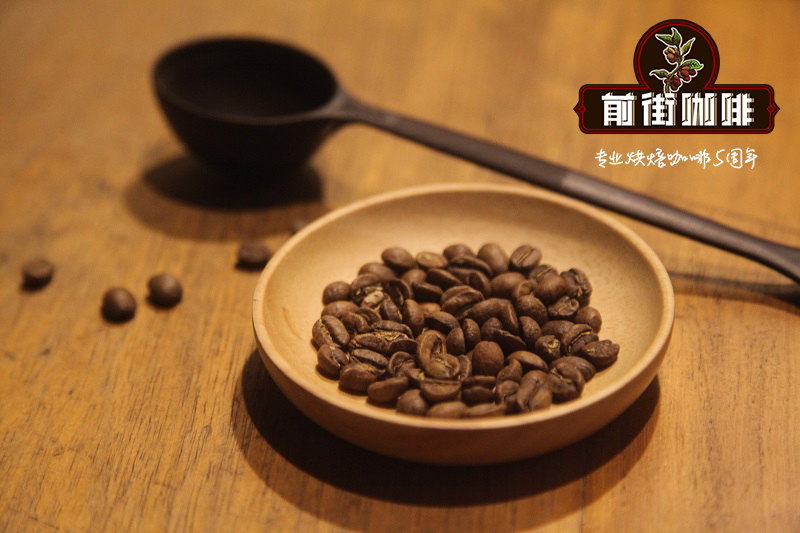An introduction to the "Coffee War" of Kenyan Coffee

Professional coffee knowledge exchange more coffee bean information please follow the coffee workshop (Wechat official account cafe_style)
Try authentic Kenyan coffee in Kenya. Kenyan coffee is aromatic, full-bodied, well-balanced and delicious in acidity, with excellent fruit flavor and rich and perfect taste. It is one of the most popular varieties in the industry.
According to a survey released by local media, six western companies currently control about 60% to 70% of coffee transactions in the Kenyan coffee market.
Last year, for example, the "Big six" received about 5.2 billion shillings ($60.5 million) to 5.6 billion shillings ($65.12 million) from the industry. the other 44 traders can only share the remaining less than 3 billion shillings ($34.88 million).
At the top of the list of the "Big six" is the British company TAYLO WINCH, which accounts for 15 per cent of the raw coffee purchasing market, followed by the diamond coffee company with a market share of 12.06 per cent, and the third UK company ARMAJARO with a market share of 10.78 per cent. In addition, there are enterprises from Germany, France and other countries participating in it.
TAYLO WINCH, for example, ships most of its coffee to Sweden, where it is baked, mixed and processed by the local VOLCAFE Coffee Company before being shipped to the United States. In the United States, the coffee is either sold directly or re-sold to other countries. It can be said that TAYLO WINCH and its partners control all aspects from production to sales.
The monopoly position determines that the "Big six" can control the rise and fall of market prices, and their participation in value chains ranging from collecting coffee beans, grinding and trading to roasting, warehousing and logistics makes it difficult for other buyers to enter the local coffee market.
Coffee is one of the main sources of foreign exchange in Kenya, and its foreign exchange earning status is second only to tea, horticulture and tourism.
Last year, as global supply increased and international coffee prices continued to fall, Kenyan coffee prices fell to their lowest level since 2007, seriously affecting the livelihoods of millions of coffee farmers. Coffee prices have rebounded since the beginning of this year due to an expected decline in coffee production due to dry weather in Brazil.
(source: Xinhuanet)
Important Notice :
前街咖啡 FrontStreet Coffee has moved to new addredd:
FrontStreet Coffee Address: 315,Donghua East Road,GuangZhou
Tel:020 38364473
- Prev

Kenyan Coffee system introduction of Kenyan Coffee recommendation Kenyan Coffee AA and AB
For more information on coffee beans, please follow the Coffee Workshop (Wechat official account cafe_style) in 1878, the British brought coffee to Africa and a Kenyan coffee plantation was established in Kenya in the 19th century, when Ethiopian coffee drinks were imported to Kenya through South Yemen. But it was not until the beginning of the 20th century that the bourbon coffee tree was made by St. Austin.
- Next

Introduction of Kenyan coffee hand siphon brewing method comparison of the quality of Kenyan coffee Kenyan aa
Professional coffee knowledge exchange more coffee bean information please follow the coffee workshop (Wechat official account cafe_style) to Kenya to try the authentic Kenyan coffee, Kenyan coffee aroma, rich, balanced acidity delicious, with excellent fruit flavor, taste rich and perfect. It is one of the most popular varieties in the industry. The results of a survey released by the local media show
Related
- Detailed explanation of Jadeite planting Land in Panamanian Jadeite Manor introduction to the grading system of Jadeite competitive bidding, Red bid, Green bid and Rose Summer
- Story of Coffee planting in Brenka region of Costa Rica Stonehenge Manor anaerobic heavy honey treatment of flavor mouth
- What's on the barrel of Blue Mountain Coffee beans?
- Can American coffee also pull flowers? How to use hot American style to pull out a good-looking pattern?
- Can you make a cold extract with coffee beans? What is the right proportion for cold-extracted coffee formula?
- Indonesian PWN Gold Mandrine Coffee Origin Features Flavor How to Chong? Mandolin coffee is American.
- A brief introduction to the flavor characteristics of Brazilian yellow bourbon coffee beans
- What is the effect of different water quality on the flavor of cold-extracted coffee? What kind of water is best for brewing coffee?
- Why do you think of Rose Summer whenever you mention Panamanian coffee?
- Introduction to the characteristics of authentic blue mountain coffee bean producing areas? What is the CIB Coffee Authority in Jamaica?

